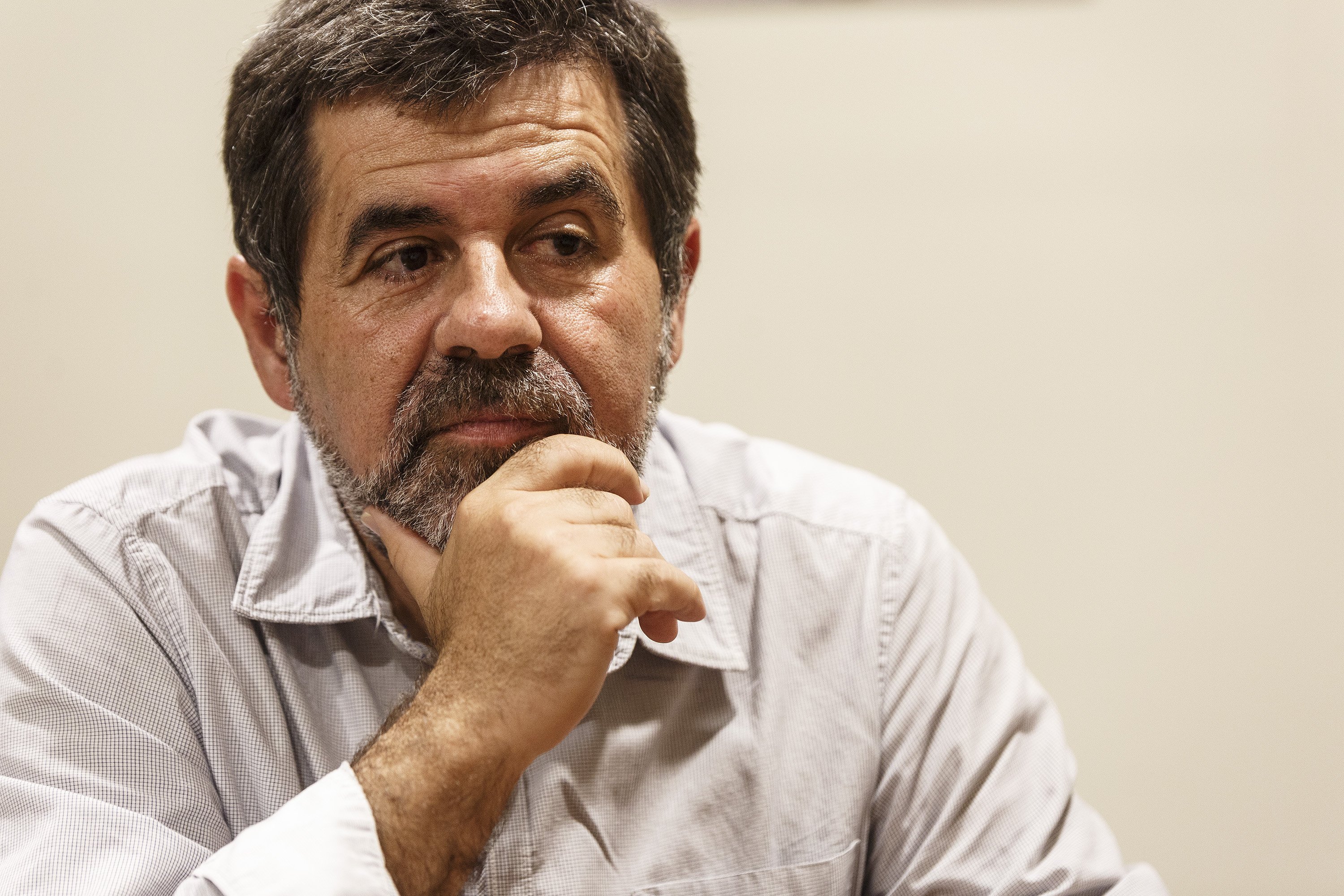Supreme Court judge Pablo Llarena has today refused the request from Jordi Sànchez, number two in Junts per Catalunya, to attend his investiture debate in the Catalan Parliament scheduled for this Friday.
He also refuses to allow him to take part by any form of telephone or video link, as his lawyer had asked. Following the decision, it has been announced that tomorrow's planned debate will be postponed.
The judge argues there remains a risk of Sànchez reoffending if released which "doesn't fit with any of the measures of release, delivery under police guard or participation in the nomination session by telecommunications means".
Llarena says that the nomination of the suspect as president of Catalonia includes factors which "markedly and rationally [suggest] that his possible mandate could be aimed at breaking a constitutional order which any voter understands democratic representation has to be carried out within, since the transgression could take place with profound harm for the same criminal prohibitive rules which have justified the inception of the present case. It's this circumstance which reflects the interest of imposing the protection of a collective political right over a leadership which, by its criminal execution, means a partial restriction of the suspect's right recognised in article 25 of the International Convenant on Civil and Political Rights".
The judge also notes that whilst Jordi Sànchez is limited in his ability to exercise his political rights, it's only a partial limitation, since he hasn't been deprived of his right to stand for election, nor his right to vote (by proxy) in Parliament. But with respect to his request to attend the investiture debate, the enforced restrictions "are fully justified given the serious consequences which him reoffending would have with respect to the constitutional and political principles and rights of all Spanish citizens and of those who constitute the electorate of Catalonia itself, as well as the marked probability that this reoffending would follow in the eventuality that he comes to be attributed with the executive functions he is nominated for".
About the UN measures
In his ruling, the judge explains that the only new evidence which supports Sànchez's application, having already denied a similar attempt previously, was the "request" from the UN Human Rights Committee on 23rd March.
In his appeal, Jordi Sànchez cited his communication, number 3160/2018, registered with that committee on 21st March this year and the response two days later, requesting Spain "take all necessary measures to ensure that Mr Jordi Sánchez i Picanyol can exercise his political rights in compliance with 25 of the International Covenant on Civil and Political Rights" as an interim measure.
In response, the judge says that "this call for the state's actions to contemplate the relevance of the law whilst the complaint is clarified neither means that the Committee is making a specific order that could ever be binding on the court, nor even dares suggest that the cautionary protection of the suspect's political rights has to include adopting any of the decisions that the applicant expresses, in other words, to enable in any way that his political rights be exercised in their entirety and that his potential naming as president of Catalonia can take place".
According to Llarena, the interest in avoiding irreparable harm to the suspect's political rights, "doesn't mean that inevitably the complete execution of their contents has to be authorised, nor that it's necessary to renounce evaluating whether him enjoying his full political rights would be in agreement with the principle that representation of the public should be carried out in a constitutionally appropriate way or whether, on the other hand, it could carry with it the partial denial of a political right of the rest of the community which would be worthy of preferential protection, as included in article 25 of the International Covenant on Civil and Political Rights itself by banning the restriction of citizens' political rights when unjust".
The judge also emphasises the Committee's criteria to admit such complaints: "they are limited to [considering] whether the communicating party or their representatives present the denunciation of events by writing, without them being contrary to the principles of the Covenant or the United Nations, as well as not appearing to constitute an abuse of law or having been submitted to another international control system in the field of human rights, as well as having exhausted the internal appeals offered by the state for the amendment of the violation".
As for constitutional and European human rights law, Llarena explains that he has, in three previous rulings, clarified that the limiting of an individual's political rights is appropriate when based on other constitutionally legitimate aims.

